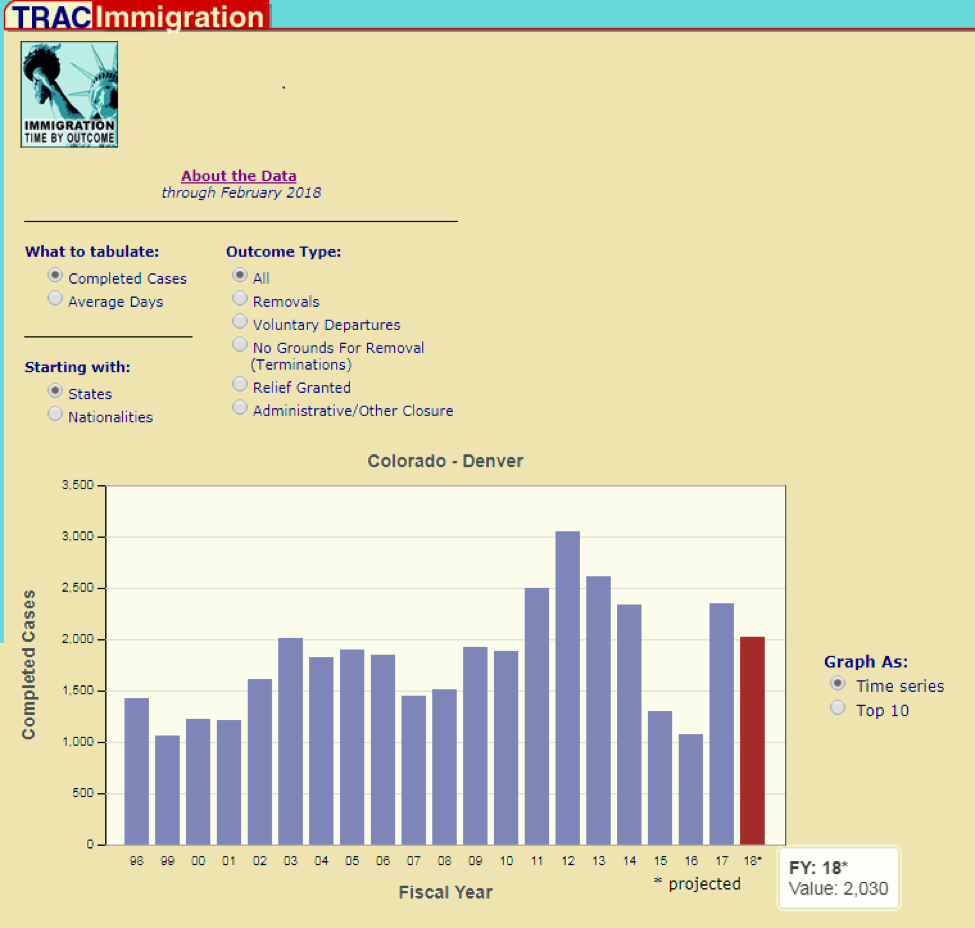Joseph Law Firm Immigration Issues Blog
New performance goals announced by the Department of Justice will require immigration judges to complete at least 700 cases per year in order to get a “satisfactory” rating.[i] Immigration judges, after subtracting out days for training and vacation, are working on cases for a maximum of 220 days per year. To meet their new 700 case quota, this would require them to finish 3.5 cases per day.
At the Denver Immigration Court, the six immigration judges are projected to complete 2,030 cases in fiscal year 2018.[ii] This averages 338 cases per judge for the year. Attorney General Sessions is thus requiring them to somehow more than double their case completion rate while still adequately developing an evidentiary record, grappling with complex legal arguments, and issuing well-reasoned decisions.
The lack of discovery in removal proceedings makes these cases even less suited to a quota system. Instead, noncitizens and their attorneys typically must request a copy of any documents relevant to their case from various agencies including United States Citizenship and Immigration Services, Customs and Border Protection, Immigration and Customs Enforcement, and the Department of State. These results can take many months or even years. Immigration judges cannot push these cases through before the noncitizen has access to their file without violating immigrants’ constitutional and statutory due process rights.
Similarly, many noncitizens’ cases in court depend on petitions which are adjudicated outside the immigration court system by United States Citizenship and Immigration Services. Neither the immigration judges nor the noncitizens have any control over how quickly USCIS adjudicates these applications. And right now, USCIS’s case processing times are skyrocketing, meaning that immigration judges will be pressured to order removals for people whose valid claims for immigration status are stuck in USCIS’s lengthy backlogs.
Unfortunately, the Jeff Sessions-led Department of Justice is about to give immigration judges an unsavory choice: faithful adherence to the law including the required due process for noncitizens in the face of potential consequences from unhappy bosses; or cranking out decisions at impossible rates in search of a “satisfactory” rating. We can only hope that most of the immigration judges will choose the former.
[i] http://cdn.cnn.com/cnn/2018/images/04/02/immigration-judges-memo.pdf
[ii] http://trac.syr.edu/phptools/immigration/court_backlog/court_proctime_outcome.php
[iii] 8 U.S.C. §1229a.
[iv] 8 U.S.C. §§ 1255(a), (i).
[v] 8 U.S.C. §1229b .
[vi] 8 U.S.C. §1158.


 RSS Feed
RSS Feed
